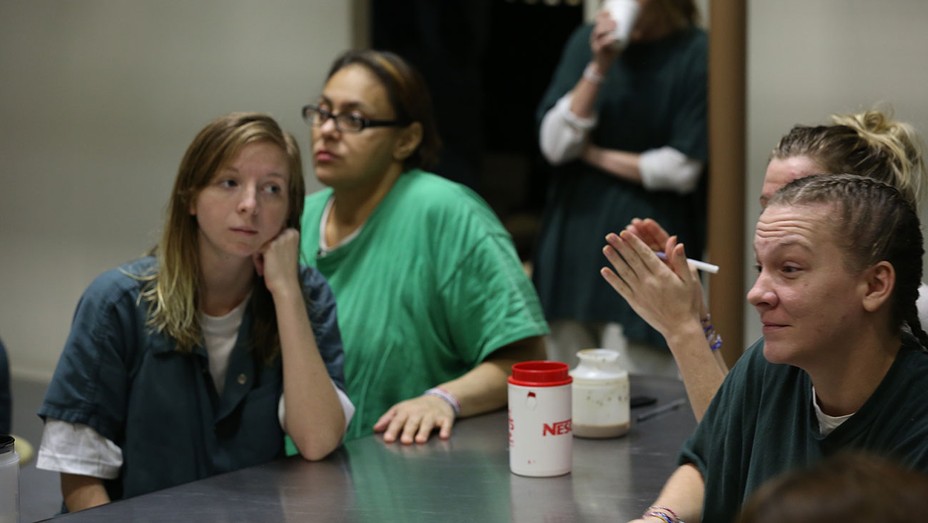Unraveling The Mystery Of 60 Days In: An Inside Look
In a world where reality television continues to capture the hearts and minds of viewers, "60 Days In" stands out as a unique experiment that immerses ordinary citizens into the harsh environment of jail life. For those who may not be familiar, the show follows several individuals who voluntarily go undercover in various correctional facilities across the United States. Their mission? To observe and report on the inner workings of the jail system while navigating the challenges of life behind bars. This captivating premise has led to numerous discussions about the impact of incarceration on individuals and society as a whole.
As participants strive to maintain their cover, they encounter a myriad of challenges, from the psychological stress of confinement to the complex relationships that form within the prison walls. "60 Days In" not only provides entertainment but also sheds light on the realities of the American penal system. With each new season, viewers gain insight into the conditions of incarceration, the struggles of inmates, and the often-unseen human side of those who find themselves on the wrong side of the law.
The show's popularity has also sparked conversations about criminal justice reform, rehabilitation, and the societal implications of incarceration. In this article, we will delve deeper into the elements that make "60 Days In" a thought-provoking and engaging viewing experience, exploring its impact on both participants and audiences alike.
What is the Concept Behind "60 Days In"?
The premise of "60 Days In" is simple yet compelling. Individuals from various walks of life volunteer to spend 60 days in a jail, posing as inmates. Their primary goal is to gather information about the conditions within the facility and identify any issues that may need addressing. The participants are often given specific missions, such as uncovering drug activity or assessing the overall safety of the inmates.
Who Are the Participants of "60 Days In"?
Participants in "60 Days In" are typically everyday citizens, ranging from teachers to business owners. They come from diverse backgrounds and have different motivations for joining the show. While some seek to understand the criminal justice system better, others may want to challenge themselves or bring attention to important issues.
What Challenges Do Participants Face During "60 Days In"?
Life in jail is drastically different from life outside, and participants must quickly adapt to their new environment. They face challenges such as:
- Maintaining their cover while interacting with real inmates.
- Dealing with the psychological toll of confinement.
- Navigating the complex social hierarchy that exists in jails.
- Managing their safety in a potentially dangerous environment.
What Impact Does "60 Days In" Have on Society?
The show has sparked conversations around the criminal justice system and the experiences of incarcerated individuals. Many viewers find themselves empathizing with the participants and the inmates, leading to a greater understanding of the challenges faced by those in the penal system. The exposure of various issues, such as overcrowding and violence, invites discussions on potential reforms.
Are There Any Notable Participants in "60 Days In"?
Over the seasons, several participants have stood out due to their compelling stories and experiences. One such individual is:
| Name | Age | Background | Motivation for Joining |
|---|---|---|---|
| Jamey | 34 | Former Teacher | To understand the environment and advocate for educational programs. |
What Lessons Have Participants Learned from "60 Days In"?
Participants often walk away from the experience with newfound perspectives on incarceration and rehabilitation. Many express a desire to advocate for reform and better treatment of inmates. The experience can be transformative, leading individuals to question their preconceived notions about crime and punishment.
How Has "60 Days In" Evolved Over the Years?
Since its debut, "60 Days In" has undergone various changes to keep the content fresh and engaging. Each season introduces a new location and set of participants, which adds depth to the narrative. The show has also expanded its focus to include issues such as mental health, substance abuse, and the impact of incarceration on families.
What Are the Future Prospects for "60 Days In"?
As the show continues to gain popularity, it is likely that "60 Days In" will explore even more complex themes related to the criminal justice system. With ongoing discussions about reform and rehabilitation, the show's relevance remains strong, and it may continue to inspire change and awareness in the years to come.
Conclusion: Why Should You Watch "60 Days In"?
"60 Days In" offers viewers a unique glimpse into the world of incarceration, providing an opportunity to understand the complexities of the criminal justice system. Through the eyes of ordinary individuals, the show humanizes the experience of being behind bars and encourages conversation about the challenges faced by those who find themselves in such situations. Whether you are looking for compelling storytelling or insights into societal issues, "60 Days In" is a must-watch.



ncG1vNJzZmivp6x7s7HBnqOrmZ6YtbjFzmeaqKVfmbykwcyepa2Zop6ytHyOb2dmnJGuwG61zWefraWc